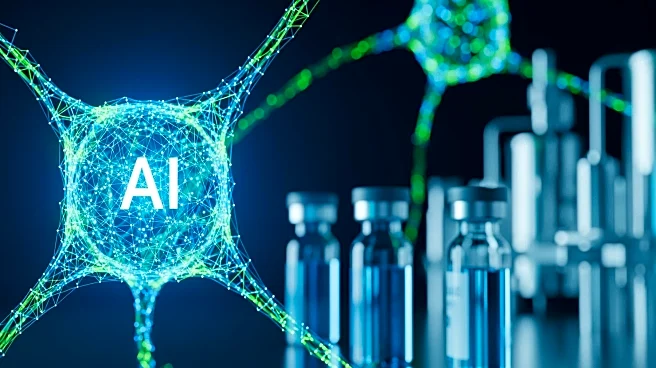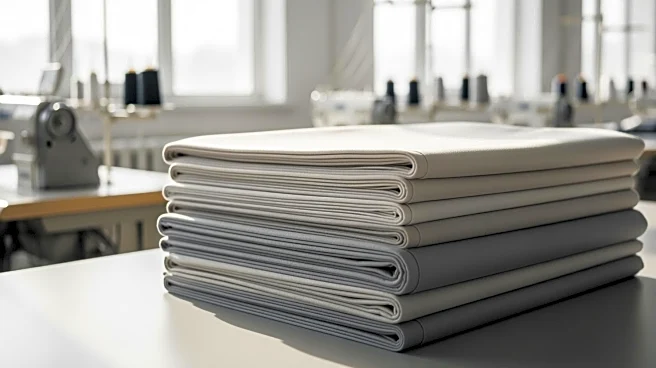What's Happening?
Artificial intelligence (AI) is poised to revolutionize vaccine production by optimizing manufacturing processes and reducing costs, according to a study co-authored by Addepally Uma, PhD, from the University
College of Engineering, Science & Technology, Hyderabad, India. The study highlights the complexity and cost of vaccine production, where upstream media and downstream operations like chromatography contribute significantly to expenses. AI-driven process optimization can predict optimal conditions for culture, nutrient feed, and purification, maximizing yield and reducing failure rates. Additionally, AI facilitates automated sampling and predictive maintenance, further enhancing efficiency and reducing costs.
Why It's Important?
The integration of AI into vaccine production processes could have a profound impact on the pharmaceutical industry by making vaccines more affordable and accessible. This is particularly important in the context of global health, where cost-effective vaccine production can improve access to lifesaving treatments. By reducing production costs, AI can help manufacturers scale up operations and meet increasing demand, especially during health crises like pandemics. The ability to optimize production processes also enhances the robustness and reliability of vaccine manufacturing, ensuring consistent quality and efficacy.
What's Next?
As AI technology continues to advance, its application in vaccine production is expected to expand. Manufacturers may increasingly adopt AI-driven systems to optimize various stages of production, from fermentation to formulation. The use of digital twins for real-time simulation and troubleshooting could become standard practice, reducing downtime and improving process efficiency. The focus will likely shift towards integrating AI with existing production infrastructure, requiring collaboration between tech developers and pharmaceutical companies to fully realize the benefits of AI in vaccine manufacturing.
Beyond the Headlines
The use of AI in vaccine production raises important ethical and regulatory considerations. Ensuring the transparency and accountability of AI-driven processes is crucial to maintaining public trust in vaccine safety and efficacy. Additionally, the shift towards automated systems may impact employment in the pharmaceutical sector, necessitating workforce adaptation and retraining. As AI becomes more prevalent, stakeholders must address these challenges to ensure equitable and sustainable integration into healthcare systems.









